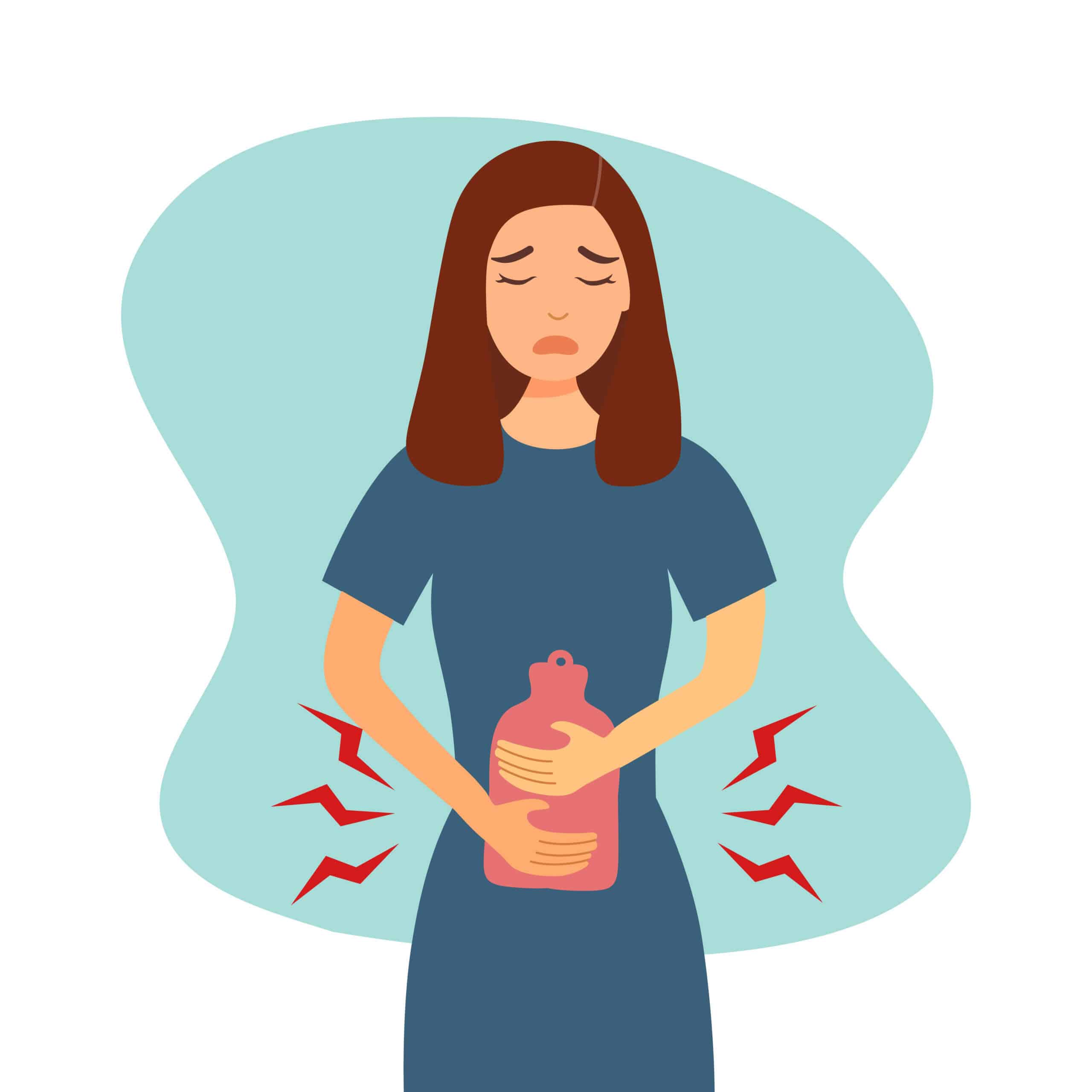Both PCOS and Endometriosis…
- Can lead to heavy bleeding
- May lead to infertility.
- Effect approximately 1 in 10 women in the UK.
- Do not have a cure
Despite these shared characteristics, the two conditions are completely different. They require different treatment and management of these symptoms are not similar.
Can I be diagnosed with both PCOS & Endometriosis?
Unfortunately, it is possible to suffer from both PCOS and Endometriosis at the same time, so it is important to understand the difference between these two conditions.
What is endometriosis?
The NHS define it as a condition where tissue similar to the lining of the womb starts to grow (anywhere outside of the uterus) in other places, such as the ovaries and fallopian tubes. This tissue is designed to shed and bleed each month as part of the menstrual cycle. This is fine when confined to the lining of the womb as the body can expel it through periods each month. However, as pointed out previously, people with endometriosis have this tissue in other areas of the reproductive system and sometimes even outside of the reproductive system (it can be in the body cavity on intestines/colon etc). As a result, it can be difficult for the blood to leave the body often causing inflammation, pain and further spread of endometriosis around the pelvic area.
Typical symptoms:
- Heavy bleeding
- Painful periods including cramps
- Pain during or after sex
- Infertility
- Painful bowel movements – particularly during periods
- Fatigue
What is PCOS?
Polycystic ovary syndrome (PCOS) is a hormonal disorder that affects the ovaries. PCOS affects women in different ways. Some women have only a few, minor symptoms, whereas others may have severe symptoms across all categories.
PCOS is diagnosed when a woman has met at least two of the three criteria outlined below:
- Ovulatory disorders, often indicated by menstrual cycle disturbances such as infrequent or absent periods
- Hyperandrogenism: Evidence of raised androgen levels in the blood, either from a blood test or from clinical signs, hirsutism (unwanted hair) and skin disorders such as acne and greasy skin are key indicators.
- Polycystic Ovaries: The presence on ultrasound scan of multiple small follicles just below the surface of the ovary. The cysts are usually no bigger than 8 mm -they are egg-containing follicles that have not developed properly due to a hormonal imbalance.
As only 2 of these 3 criteria need to be met you could be diagnosed with PCOS without having any cysts in your ovaries.
Common symptoms of PCOS include:
- Fertility Issues
- Period Problems – Irregular periods or no periods
- Pregnancy Complications – Increased risk of developing diabetes or high blood pressure (pre-eclampsia) during pregnancy
- Weight Issues –being overweight and having difficulty losing weight
- Acne
- Unwanted Hair Growth
So what are the differences between PCOS and endometriosis?
One of the main differences between PCOS and endometriosis is how they are caused. PCOS is a hormonal disorder, whereas endometriosis is caused by abnormal tissue growth outside of the uterus.
There are also distinct differences when it comes to symptoms. Endometriosis is usually characterised by heavy bleeding and painful periods, whereas PCOS tends to cause irregular or absent periods, along with more visible symptoms, such as acne or excess hair growth.
Can you get pregnant with PCOS or endometriosis?
Yes, it’s still possible to get pregnant if you have PCOS or endometriosis. If you’re experiencing symptoms of PCOS or endometriosis and are trying to conceive, it’s always worth booking an appointment to speak with a GP or fertility specialist.
How do you get diagnosed with PCOS?
If you suspect you may have PCOS, it’s recommended to book an appointment with your GP. They’ll ask questions about your symptoms and will arrange for you to have a series of hormone tests. They may also arrange for you to have a blood test to measure your hormone levels and an ultrasound to see if you have polycystic ovaries.
How do you get diagnosed with endometriosis?
Diagnosing endometriosis can be difficult as the symptoms can vary. If you are experiencing signs of endometriosis, your GP will ask questions about your symptoms and how it impacts your life. They might ask to examine your tummy and vagina or they may refer you to a gynaecologist for further tests, such as an ultrasound scan, MRI or laparoscopy.
Treatment for endometriosis & PCOS
The treatment for each of these conditions is completely different and there are a variety of different methods used to help manage the symptoms.
Treating endometriosis
Sadly, there is no cure for endometriosis, and it can be complicated to treat.
Pain medication
Your doctor could decide to prescribe you with pain medication, specifically anti-inflammatories such as ibuprofen and paracetamol.
Combined contraceptive pill
This stops eggs being released and can help make periods lighter and less painful
Hormone-inhibiting treatment
Aimed at limiting oestrogen production, this can help to reduce the amount of proliferation of endometrial tissue, which is under the influence of oestrogen, so less endometrial tissue is present
Surgery
In some cases, your GP or gynaecologist might suggest having surgery, possibly a laparoscopic procedure or, in extreme cases, a hysterectomy.
Laparoscopic surgery (also known as keyhole surgery) involves using a small incision by the umbilicus (belly button) to see and introduce other instruments to undertake an operation. In the case of endometriosis this may involve burning away endometriotic tissue.
A hysterectomy is the removal of the womb, which has significant long-term effects and is only recommended in severe cases, as it will by definition cause infertility.
Treating PCOS
Like endometriosis, there is no cure for PCOS. However, there are several treatments which have been proven to help manage the condition.
Weight reduction
A common issue for ladies with PCOS is being overweight. If this applies to you then changing your diet and exercise routine to help get your BMI in the healthy range can help. In fact, the NHS say that losing just 5% of your body weight can significantly improve PCOS. There is some evidence suggesting that Inofolic Alpha in association with diet can achieve a 6% reduction in weight.
Medication
If you are interested in becoming pregnant your doctor might prescribe medication to help achieve ovulation. Other symptoms of PCOS can be treated with other medicines; sometimes women with PCOS are put on the pill.
Supplementation
Inofolic Alpha could help women with PCOS.
Other resources
For more support on endometriosis, you can visit Endometriosis UK, the leading charity in Britain which provides support services, reliable information and a community for those affected by endometriosis.
There is a lot more information on PCOS and Inofolic Alpha available on our website. On top of this, we have written a number of other articles on our blog which covers a wide variety of PCOS related queries.








